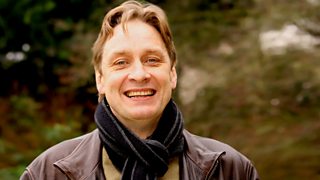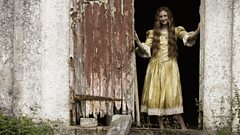Russian Opera
Donald Macleod explores the rich tradition of Russian opera.
Donald Macleod explores the rich tradition of Russian opera, from Glinka to Schnittke. Opera began in Italy and that's where Russia got it from too; a string of Italians from Ristori to Cimarosa staged productions in St Petersburg and thereby planted the seeds from which Russia's own operatic tradition eventually sprang.
That first sapling appeared in 1836 with Mikhail Glinka's A Life for the Tsar, universally regarded as the first 'real' Russian opera. In The Stone Guest, Alexander Dargomïzhsky continued the move away from the Italian tradition with his naturalistic approach to text-setting, which removed the distinction between aria and recitative. Mussorgsky took part in early private run-throughs of Dargomïzhsky's work and was so impressed that he decided to try his hand at the same kind of thing; the result was The Marriage, his first opera and an important milestone on the way to his masterpiece, Boris Godunov. Musorgsky and Tchaikovsky were the two late-19th-century titans whose work still forms the core of the repertoire. It's hard to imagine two more different musical personalities.
Musorgsky was largely self-taught, a true musical radical whose credo was artistic 'truth'; Tchaikovsky, the product of a Western-oriented conservatoire training, was concerned less with truth than with beauty. Musorgsky worked on his opera Khovanshchina for nine years, leaving it unfinished on his death; Tchaikovsky wrote The Queen of Spades in 44 days of white-hot inspiration. Like many of his contemporaries, Tchaikovsky regarded Musorgsky's work as brilliant but flawed, but he nonetheless recognized a major talent, writing that Musorgsky "flaunts his illiteracy, takes pride in his ignorance, mucks along anyhow. Yet for all his ugliness, Musorgsky does speak to us in a new language. It may not be beautiful, but it is fresh." Musorgsky's masterpiece,
Boris Godunov, is still fresh today. It's a disturbing and profoundly moving psychological study of a deeply troubled individual, played out against the broad canvas of the miserable plight of the oppressed masses and set to some of the most thrilling music ever written. Tchaikovsky's Eugene Onegin is likewise a psychological study - of a man who comes to regret the path his life has taken.
Duration:
This clip is from
Featured in...
![]()
Themes and Styles—Discovering Music
What is a fugue? How do composers use rhythm and harmony? Find out more.
More clips from Composer of the Week
-
![]()
Wrth fynd efo Deio i Dywyn (trad.) arr. Jayne Davies
Duration: 01:46
-
![]()
Lisa lân (traditional) , arr. Jayne Davies
Duration: 03:12
-
![]()
Morfydd Owen's Llwyn Owen, arr. Edward-Rhys Harry
Duration: 05:17
-
![]()
Blacklisted!—Sofia Gubaidulina (b 1931), An Incorrect Path
Duration: 01:21







